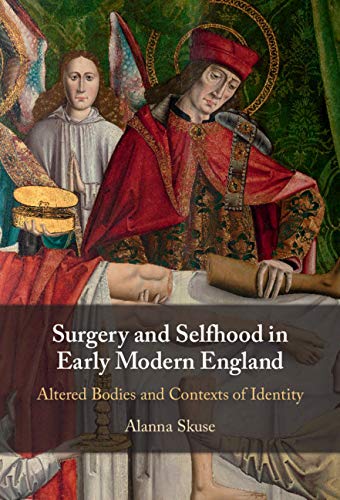We’re delighted to announce the recent publication of Surgery and Selfhood in Early Modern England by Dr Alanna Skuse, Wellcome Trust Research Fellow for the Department of English at the University of Reading and steering committee member of the Centre for Health Humanities.
Offering an innovative perspective on early modern debates concerning embodiment, Dr Skuse examines diverse kinds of surgical alteration, from mastectomy to castration, and amputation to facial reconstruction. Body-altering surgeries had profound socio-economic and philosophical consequences. They reached beyond the physical self, and prompted early modern authors to develop searching questions about the nature of body integrity and its relationship to the soul: was the body a part of one’s identity, or a mere ‘prison’ for the mind? How was the body connected to personal morality? What happened to the altered body after death? Drawing on a wide variety of texts including medical treatises, plays, poems, newspaper reports and travel writings, this volume will argue the answers to these questions were flexible, divergent and often surprising, and helped to shape early modern thoughts on philosophy, literature, and the natural sciences. This title is available as Open Access on Cambridge Core.
Alanna Skuse is the Wellcome Trust Research Fellow for the Department of English at the University of Reading. She was previously the Wellcome Trust Postdoctoral Research Fellow at the University of Reading and long-term research fellow of the Folger Shakespeare Institute, Washington DC, and is also the author of Constructions of Cancer in Early Modern England: Ravenous Natures (2015).
Skuse, A. (2021) Surgery and Selfhood in Early Modern England: Altered Bodies and Contexts of Identity. Cambridge University Press. ISBN 9781108919395 doi: https://doi.org/10.1017/9781108919395

